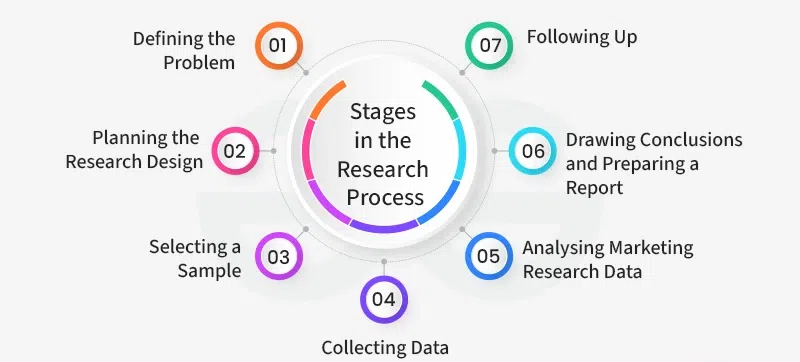Research papers are the backbone of innovation in computer science. They encapsulate the collective efforts of researchers to solve pressing problems and introduce new theories, technologies, and methodologies. Understanding how to find, read, evaluate, and organize these papers is essential for academic and professional growth.
Introduction to Research Papers
Computer science evolves rapidly—with emerging fields like quantum computing, machine learning, and cybersecurity changing yearly. To stay updated and contribute meaningfully, professionals and students must actively engage with academic literature. Research papers are peer-reviewed documents that document experimental results, theoretical proposals, and applied techniques. They help disseminate new knowledge, identify research gaps, and provide reproducible evidence for future studies.
Why Research Papers Matter
Research papers are more than just academic exercises—they set the stage for real-world impact. They serve as:
- Innovation Drivers: New technologies and algorithms often originate from research findings.
- Learning Tools: Papers provide in-depth, real examples beyond textbooks or tutorials.
- Collaboration Avenues: Researchers build on each other’s work through citations and feedback loops.
- Professional Growth: Reading and writing papers can enhance critical thinking, writing, and presentation skills.
Where to Find Research Papers
Accessing credible research is the first step toward building a strong knowledge foundation. These platforms are essential:
Academic Databases
- IEEE Xplore: Focuses on computer science, electronics, and communication papers. Ideal for technical research.
- ACM Digital Library: Rich in computing theory, systems design, HCI, and software engineering content.
- SpringerLink: Offers a broad range of journals, books, and proceedings in computing and applied sciences.
- ScienceDirect: Elsevier’s database includes articles on computing, AI, robotics, and engineering.
- Wiley Online Library: Useful for interdisciplinary computing research, especially in health and bioinformatics.
Preprint Servers
Preprints offer early access to cutting-edge research before formal peer review. Great for fast-moving fields like AI or blockchain:
- arXiv: The most active platform for preliminary research in CS, physics, and math. Includes CS-specific categories.
- SSRN: Covers interdisciplinary research intersecting CS with law, economics, and policy.
- TechRxiv: An IEEE-hosted preprint server for engineering and technology-focused research.

Effective Search Strategies
Finding relevant papers isn’t just about keywords—it’s about search logic, source filtering, and reference tracking. Try these techniques:
Precise Keywords
Use domain-specific terms (e.g., “federated learning,” “zero-knowledge proof”) and combine them using Boolean operators like AND, OR, NOT.
Publication Years
Filter by recent years for cutting-edge topics or go back 5–10 years to find foundational or milestone studies.
Citation Networks
Use Google Scholar or Semantic Scholar to trace papers cited by or citing a paper you found useful.
Follow Researchers
Identify key researchers, check their Google Scholar profiles, and follow their latest publications on platforms like ResearchGate or ORCID.
"The first principle is that you must not fool yourself – and you are the easiest person to fool"
How to Evaluate Research Papers
Don't take every paper at face value. Use these criteria to assess relevance, rigor, and trustworthiness:
- Peer-Review Status: Favor peer-reviewed journal articles or conference proceedings (e.g., NeurIPS, ICSE, SIGCOMM).
- Citation Count: While not perfect, a higher citation count often reflects the paper's influence or applicability.
- Venue Quality: Use CORE Ranking or Scimago to check if the journal or conference is reputable.
- Author Affiliations: Consider the institutions or research labs involved. Top universities or organizations often produce high-impact work.
- Clarity of Methodology: Look for well-defined experiments, datasets, and reproducibility details.
Organizing and Managing Your Research Papers
Once your library grows, managing research efficiently becomes critical. A strong system saves time, reduces duplication, and supports writing your own papers.
- Zotero / Mendeley: Store, tag, and annotate PDFs. Use browser extensions for one-click citation saving.
- Notion / Obsidian: Build a knowledge graph by interlinking ideas, summaries, and highlights across papers.
- Google Scholar Alerts: Get notified when new papers match your search criteria or author profiles.
- BibTeX Libraries: Use LaTeX with a `.bib` file for formatting citations consistently in academic writing.
Conclusion
Mastering research papers is a powerful asset. Whether you're working on a thesis, developing an ML model, or contributing to open-source, being able to discover, assess, and apply academic research gives you an edge in solving problems rigorously and creatively.
Key Takeaways
- Use trusted academic databases and preprint servers to find reliable content.
- Employ smart search strategies including keywords, filters, and citation tracing.
- Evaluate papers critically based on methodology, peer review, and impact.
- Use tools like Zotero and Notion to manage your research workflow efficiently.
